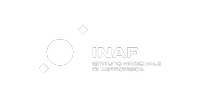DustPedia
Abstract: The European Space Agency has invested heavily in two cornerstone missions: Herschel and Planck. These space observatories provide us with an unprecedented opportunity to study, at far infrared wavelengths, the cold Universe beyond our Galaxy. As these missions come to an end (2013) they will leave a huge legacy data set that we intend to exploit by utilizing the complimentary expert skills of researchers at six sites across Europe. To maximize our spatial resolution and sensitivity to cosmic dust our intention is to analyze in detail 3045 local galaxies (v<3000 km/s) selected via their near infrared luminosity (stellar mass). This data provides us with an opportunity to study cosmic dust in galaxies to answer fundamental questions about: the origin of the chemical elements, physical processes in the interstellar medium (ISM), its effects on the emitted stellar radiation, its relation to star formation and the cosmic far infrared background. In the course of our work we will develop tools and computer models that will help us relate observed cosmic dust emission to the physical properties of the dust (chemical composition, size distribution, temperature), the origins of dust (evolved stars, super novae, growth in the ISM) and the processes that destroy it (high energy collisions and shock heated gas). To help us interpret the data we will use our own, world leading, Monte Carlo photon tracing radiative transfer model of galaxies and our state-of-the-art model of dust physical properties. To carry out this research we will need to combine the Herschel/Planck data with that from many other recently compiled databases that contain observations of our sample galaxies at other wavelengths, thus creating the definitive legacy database - DustPedia.
Dettagli tecnici
Struttura INAF: OA Arcetri
Bando: FP7-SPACE-2013-1
Riferimento contratto n. 606847
Inizio: 01/11/2014
Durata: 42
Coordinamento: Cardiff University
Partner

